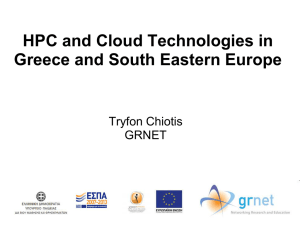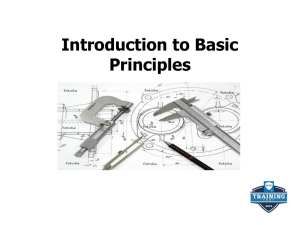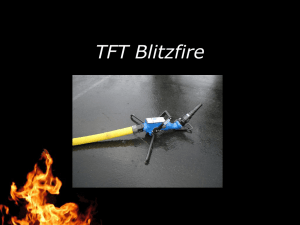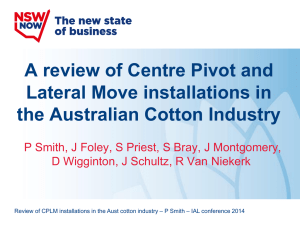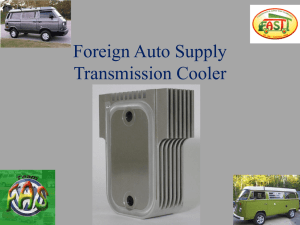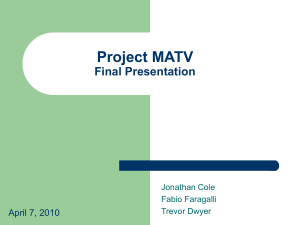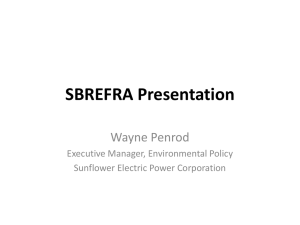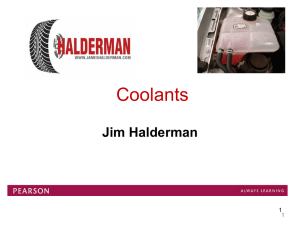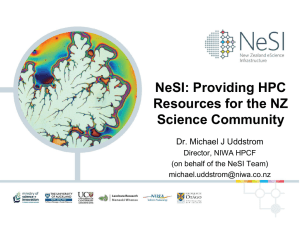the presentation here
advertisement
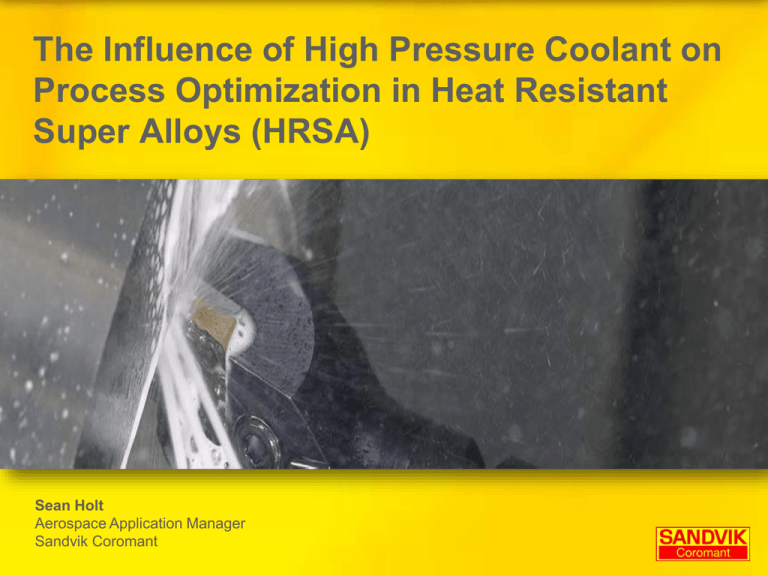
The Influence of High Pressure Coolant on Process Optimization in Heat Resistant Super Alloys (HRSA) Sean Holt Aerospace Application Manager Sandvik Coromant Agenda Introduction and history of High Pressure Challenges in Machining – Operational differences HPC System requirements, benefits & considerations HRSA machining results & difference with other materials Future trends & directions 2 The History of High Pressure Coolant (HPC) Pressure bar (psi) 500 (7250) Ccoupling for UHPC VTL 100 (1450) Standard coupling 1984 3 Multi-task Machining center Turning center 1990 1996 2007 2012 High Pressure Coolant Definitions High Pressure Coolant (HPC) up to 80 bar (1160 psi) – Standard option on most machines • Turning centers • Machining centers • Multi-task machines – Standard Coromant Capto® coupling – Standard Sandvik Coromant tools available Ultra High Pressure Coolant (UHPC) over 80 bar (1160 psi ) – Standard option for a few machine manufacturers • Limited to VTLs – Coromant Capto® coupling for UHPC – Tool holders only as special 4 High Pressure Coolant Definitions Pressure (p) ( ) Force per unit area – Pascal – Bar N/m2 = = 0.1 MPa (14.5 psi) Flow rate () Volume displaced per time unit – liter/min (gallons/min) Velocity (w) Speed fluid moves through a tube – m/sec (ft/sec) 5 K k (w) High Pressure Coolant Challenges in machining Operation differences: Turning – continuous single point – Cutting temperature – Chip control Milling – interrupted multiple teeth – Chip formation – Cutter positioning – Re-cutting of chips – unsecure or short tool life Drilling – continuous multiple teeth – Varying cutting temperature • hot periphery • tough center – Chip control and evacuation through flute 6 HPC – Machining Requirements HPC – System requirements Pump/machine Tool – Pressure – Nozzle diameter – Volume/flow rate – Number of nozzles – Filter – Jet flow – Jet direction 8 HPC – System requirements Principles Reducing the area increases the velocity Smaller outlet reduces the pressure and flow rate requirements to achieve a high velocity jet 9 Flow velocity w1 Flow velocity w1 w2 HPC – System requirements Flow requirement CD Flow expressed in m3/s Nozzle efficiency - 80% 20 to 300 bars (290-4350 psi) - 70% 300 to 1000 bars (4350-14500 psi) n d p Number of nozzles Nozzle diameter (m) Pressure (Pa) - 1 bar (100 000 Pa) - 1 psi (6895 Pa) Fluid density - for water and cutting fluids the density is ~ 1000 kg/m3 The larger the outlet area the greater the flow required to deliver a given pressure 10 HPC – Machining HRSAs HPC – Turning applications Precision is the power • Hydraulic wedge lifts the chip • Reduces temperature • Improves chip control Coromant Capto® Normal coolant inlet High precision jet nozzles Pre-defined target areas on the insert face 12 HPC – Turning applications Inconel 718 (46HRC) -Total material removed (TMR) ap fn CNMX 1204A2-SM S05F 2.5 mm 0.3 mm/rev CNMX 43A2-SM S05F 0.1 inch 0.012 inch/rev With CoroTurn® HP 70 bars (1160 psi) – Metal removal +50 at same speed – Cutting speed +20% with same total metal removal Total material – Q (cm3) Insert Surface cutting speed – Vc (m/min), ft/min 13 HPC – Turning applications Inconel 718 (46HRC) - Chip control Insert vc CNGG 120408 -SGF1105 65 m/min CNGG 432-SGF 1105 213 sfm Normal Pressure 80 bar (1160 psi) Cutting depth ap (mm) Cutting depth ap (mm) 2.0 2.0 1.0 1.0 0.5 0.5 Feed fn (mm/rev) 0.25 0.15 14 0.2 0.25 Feed fn (mm/rev) 0.25 0.15 0.2 0.25 HPC – Turning applications Inconel 718 (46HRC) - Demonstration Insert ap CNGG 120408-SGF 1105 0.25 mm 0.15 mm/rev CNGG 432-SGF 1105 0.01 inch 0.006 inch/rev CoroTurn® HP normal pressure 15 fn CoroTurn® HP 80 bars, 1160 psi HPC – Machining in the Future UHPC – Turning applications The basic concept of the technique UHPC HPC Coolant inlet UHPC tool - coolant supplied externally HPC tool – internal coolant supply through Coromant Capto ® polygon into the Coromant Capto® coupling 80 bar (1160 psi) UHPC blanks - prepared with four sealing seats 80-1000 bar (1160-14500 psi) 17 UHPC – Turning applications Effect on Inconel 718 Normal coolant – 3 mins UHPC - 230 bar (3300 psi) – 3 mins UHPC - 150 bar (2200 psi) UHPC - 300 bar (4350 psi) 18 Summary HPC has seen significant improvements in the last few years New technologies & methods have made machining in HRSAs more efficient Benefits of using HPC in HRSA machining: Improves chip control Improves tool life Improves cutting speeds 19 20
